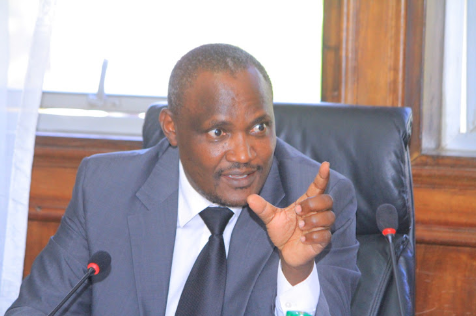President William Ruto’s nominee for the National Treasury, John Mbadi, faces a challenging path if he passes the scrutiny of Parliament. Taking on the role in a government struggling with financial constraints and pressing delivery commitments, Mbadi will need to navigate a complex situation.
Mbadi, the chairman of the Orange Democratic Movement (ODM) and a Master of Business Administration graduate from the University of Nairobi, is set to replace Professor Njuguna Ndung’u, who faced issues such as a sovereign debt default scare, an unstable shilling, and low revenue collection during his 18-month tenure.
Now, as he steps into this critical role, Mbadi is tasked with sourcing funds to support a Sh3.8 trillion budget for the current financial year. This comes after public outcry led President Ruto to abandon the Finance Bill, 2024, which could have raised an additional Sh347 billion. Earlier this month, Ruto announced austerity measures, including merging state agencies with overlapping functions.
“The 47 state corporations with overlapping roles will be dissolved, and their responsibilities transferred to ministries and state agencies,” Ruto stated.
With indications that more borrowing may be necessary to cover the over Sh700 billion budget deficit, Mbadi will need to work hard to persuade cautious local and international lenders. The revenue target, which includes collections by the Kenya Revenue Authority (KRA), is set at Sh2.9 trillion, down from Sh3.3 trillion.
Locally, investor interest in government securities is waning, as evidenced by significant undersubscriptions in recent bond and bill offerings. Treasury bills have been undersubscribed for three consecutive weeks, with the latest subscription rates dropping to 32 percent from 60 percent the previous week.
The 182-day and 364-day bills also saw reduced subscription rates of 14.9 percent and 18.3 percent, respectively. In contrast, 91-day bills performed better, with the Central Bank of Kenya (CBK) accepting Sh6.1 billion out of Sh7.7 billion in bids, reflecting a 79 percent acceptance rate.
In the early sale of a Sh20 billion bond, the government managed to collect only Sh487.5 million, marking the lowest subscription rate in the past five years.
Moody’s, a global credit rating agency, has downgraded Kenya’s credit rating, potentially leading to higher interest rates or even the inability to secure loans. The agency revised Kenya’s local and foreign-currency long-term issuer ratings, as well as foreign-currency senior unsecured debt ratings, from B3 to Caa1, maintaining a negative outlook.
The Caa1 rating indicates a high likelihood of default in the event of economic shocks.
Economic experts warn that this downgrade could severely impact the financing of this year’s budget, with institutions like the International Monetary Fund (IMF) delaying approval of crucial disbursements. The IMF was expected to finalize the last review of Kenya’s $3.4 billion facility, issued in 2021, in June.
However, Prime Cabinet Secretary Musalia Mudavadi stated on Monday that the IMF would now approve the funding next month.
Mbadi faces the challenging task of addressing maturing loans as Kenya’s total public debt reaches Sh10.4 trillion, according to the Central Bank of Kenya’s latest bulletin. Economist Julie Mwai praised Mbadi’s appointment, describing him as competent and effective. However, she noted that his political background might hinder his ability to serve effectively.



